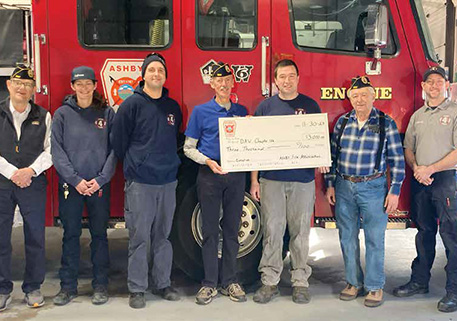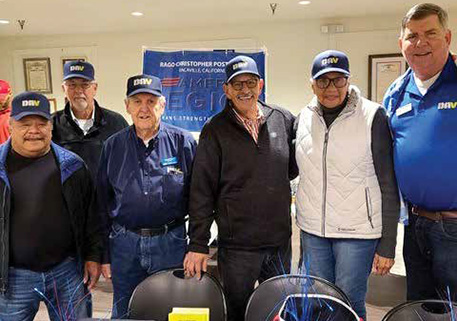
DAV Share My Story platform offers veterans a space to use their experiences to help themselves—and others
Growing up in Puerto Rico, Migdalia Griswold wasn’t raised speaking English. Fresh out of high school and teeming with big dreams, in 1980, she enlisted in the Army and set off to begin a new chapter of her life.
“I just wanted to be all I could be,” said Griswold. “I dreamed of being in the military, serving my country and just being somebody.”
She proved to be a model soldier, quickly picking up a new language and adapting to life in the military, earning commendations and promotions along the way. But in 1983, while stationed at Fort Dix in New Jersey, events unfolded that would cut Griswold’s career short and change the trajectory of her life.
“I was up late in bed studying for a test the next day and I heard a noise,” recalled Griswold. “I got up to see where the noise was coming from, and there was a man standing there with a knife.”
The man taped Griswold’s hands behind her back and bound her feet, and after rifling through her purse, he brutally raped her at knifepoint.
When the attack was over and the man fled, Griswold was able to call for a neighbor and summoned the police. She was taken to the hospital, alone and terrified, to receive care and file her report. Shaken up and medicated for pain, she encountered a captain who offered to take her home. Instead, he took advantage of Griswold’s subdued, medicated state and sexually assaulted her.
The next day, she reported the incident to her command. But as was and—often still is—all too common, Griswold was met with suspicion and accusations despite her exemplary record of service. Ultimately, she was forced out of the Army with an other than honorable discharge.
With the trauma of the assault and the effects of a military career unfairly cut short, Griswold’s mental health suffered.
“Her anxiety was increased by unsympathetic supervisors and the implication from the Criminal Investigation Division that she was lying about the details of the rape,” wrote the Army social worker who evaluated her immediately following the attack, and again one month later, in his official report. “It appears she was presented with all of the negative stereotypic responses that women receive after being raped.”


Adding insult to injury, Griswold received a phone call from the Federal Bureau of Investigation several months after her discharge asking her to return to New Jersey to identify her attacker out of a lineup and testify against him in court, threatening to subpoena her if she did not willingly comply. An Army reservist named Anthony Shelton had been arrested for her rape, and police reports obtained by DAV—which include Shelton’s own confession of the attack—detail a string of violent sexual assaults and rapes on base, throughout southern New Jersey and as far away as Camp Casey in Korea.
Shelton was convicted and imprisoned for 20 years, though the captain Griswold had accused of the latter assault was never investigated or punished, leaving her to feel as if her experience was never validated.
For years Griswold tamped down the pain, never sharing this dark part of her history even with those closest to her. But in 2019, she received a letter from the Department of Veterans Affairs informing her that, as a survivor of military sexual trauma (MST), she was eligible to have her claim reexamined.
The letter tore open old, unhealed wounds, bringing a flood of emotion to the surface. Griswold immediately contacted DAV, and National Service Officer Naomi Mathis and local service officers in Florida assisted her. Though she has ample official evidence to support her claim, her discharge status has prevented her from receiving the full scope of VA benefits and she must go through the process of fighting for an upgrade.
“The military environment can be an ‘all boys’ club at times, and unfortunately, MST survivors have not always been treated fairly,” said Mathis. “Although the military services and VA are working to change that, the climate hasn’t changed fast enough to properly address many sexual assaults or their aftermath.”
The process is difficult for veterans like Griswold, who are forced to relive trauma in order to gain access to needed health care and benefits. But as part of her ongoing therapy, Griswold chose to speak out and share her story with DAV in order to help herself—and others like her—heal.
“I couldn’t do it alone,” she said. “My DAV officer is by my side through this horrible experience. They are helping me to stay focused, stay strong, and they are doing it with compassion and discretion.”
“DAV will be there with her,” said Mathis. “She won’t have to fight this by herself.”
Have a story you’d like to share? Visit mystory.dav.org.






